
You Anshan, head of the research center of Hong Kong and Macao affairs under the Shanghai Academy of Social Sciences, said commodity price hikes will probably dent the mainland's supply of farm produce to Hong Kong and Macao.
"But mainland suppliers are still in advantageous positions in prices and costs compared with suppliers in other regions," he said.
He added that the mainland's supply of farm produce and energy products is important to the social and economic stability of Hong Kong and Macao, though their economies are open to other import sources.
The State Council, or China's cabinet, issued more targeted measures on Tuesday to stabilize food prices before the Spring Festival holiday, a peak time for food consumption. Agriculture authorities have been told to play a guiding role in introducing cold-resistance and pest prevention measures to boost vegetable production across the country. Municipal governments in major northern cities are required to draw up contingency plans and release government reserves of vegetables and meat in a timely fashion.
"The mainland's power supply to Hong Kong and Macao is quite optimistic this year as we optimized the power operation system," said Qin Zhijun, deputy director of the power department of the National Energy Administration.
The mainland supplied 11.8 billion kWh of electricity to Hong Kong in 2012, about a fourth of the latter's total consumption, and 3.86 billion kWh of electricity to Macao, almost 90 percent of Macao's consumption, according to the administration.
Meanwhile, the increase in liquefied natural gas output in Shenzhen will ensure steady gas supply to Hong Kong during the holiday, while a branch of the West-East Gas Pipeline is in place to provide more gas to the region.
A pipeline, designed to provide 520 million cubic meters of gas each year, will ensure gas supply to Macao in the next 20 years after construction ends in June.

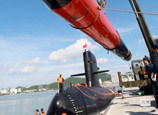



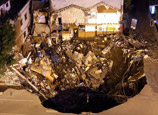
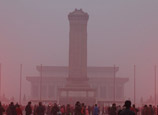


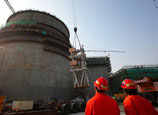
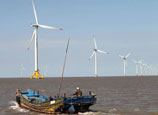






 Buildings collapse after subsidence in S China
Buildings collapse after subsidence in S China


![]()
